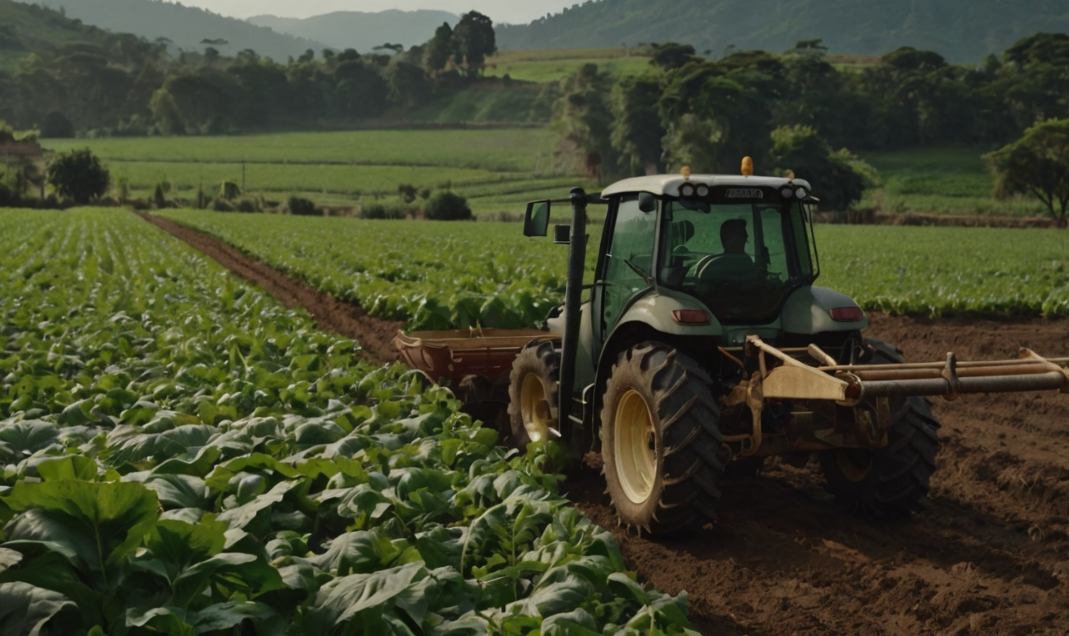8 Proven Sustainable Farming Methods That Are Transforming Agriculture
Did you know that a single teaspoon of healthy soil contains more living organisms than there are people on Earth? This extraordinary fact underscores why sustainable farming matters so much today.
As our world faces growing environmental challenges, sustainable farming emerges as a beacon of hope. It's not just about growing food - it's about nurturing the complex web of life that makes agriculture possible while ensuring we can feed future generations without depleting our planet's resources.
Understanding Sustainable Farming: A Path to Agricultural Resilience
The Evolution of Agriculture
Sustainable agriculture practices represents a fundamental shift from industrial agriculture, offering solutions to environmental challenges while ensuring food security. This approach meets current food needs without compromising future generations' ability to do the same. By focusing on soil health, biodiversity, and resource conservation, sustainable farming helps overcome the limitations of conventional farming methods that often lead to soil degradation and ecosystem damage.
Crop Rotation: Building Soil Health
Crop rotation improves yields stands as a cornerstone of sustainable farming. By changing crops seasonally, farmers improve soil organic matter and enhance microbial diversity. This practice naturally suppresses pests and diseases while recycling nutrients effectively. Rotating crops also increases water retention in soil, making farms more resilient to drought conditions. For example, alternating between grains and legumes helps fix nitrogen in the soil, reducing the need for synthetic fertilizers.
Agroforestry: Trees Meet Agriculture
Agroforestry enhances biodiversity by integrating trees into farming systems creates rich, diverse landscapes that support both agriculture and nature. Agroforestry systems act as ecological corridors, allowing wildlife to move between habitats while providing additional income through tree products. These systems show 40% higher bird species richness and over 100% more insect diversity compared to conventional farms. The tree canopy also protects soil from erosion and helps maintain moisture levels.
Permaculture's Self-Sustaining Systems
Permaculture promotes self-sustaining ecosystems by combining different plants and animals that help each other thrive, these systems reduce the need for external inputs. The approach focuses on using natural methods for pest control and soil building, creating harmony between fruits, vegetables, trees, and livestock. This integration helps establish closed-loop systems that minimize waste and maximize resource efficiency.
Organic Methods for Healthier Farms
Organic farming benefits contribute to cleaner water, healthier soil, and increased biodiversity. By avoiding synthetic pesticides and fertilizers, organic methods reduce pollution risks and support natural ecosystem functions. These practices help capture and store more carbon in the soil, supporting climate change mitigation while producing nutritious food. They also promote nitrogen-free systems that protect underground water supplies.
Cover Crops and Minimal Tillage
Cover crops improve soil by protecting it from erosion and enhancing its structure. They create macropores that improve water infiltration and air movement through the soil. When combined with minimal tillage, these practices build organic matter and reduce the need for synthetic inputs. Cover crops can increase corn yields by 3% and soybean yields by 4.9% after five years of consistent use. They also help break pest cycles and suppress weed growth naturally.
Economic Benefits for Farmers
Sustainable farming enhances profitability through reduced fuel consumption, lower input costs, and improved resource efficiency. While transition periods may require initial investments, long-term benefits include increased crop yields, premium market prices, and greater farm resilience. Direct sales opportunities at local markets help farmers capture more value from their products.
Success Stories in Sustainable Farming
Farmers worldwide demonstrate the viability of sustainable practices. For instance, Takao Furuno's duck-rice-fish system in Japan shows how integrated farming can reduce chemical inputs while maintaining productivity. Joel Salatin's Polyface Farms proves that closed-loop natural systems can support profitable farming while enhancing biodiversity. These examples show that sustainable farming isn't just environmentally sound - it's economically viable too.
Embracing a Sustainable Future
Sustainable farming isn't just a trend - it's a vital shift in how we grow our food. By embracing practices like crop rotation, agroforestry, and organic methods, farmers worldwide are proving that we can produce abundant food while protecting our environment.
The success stories from farms across the globe show us that sustainable agriculture works. When we work with nature instead of against it, we create resilient food systems that benefit everyone - from the soil microbes beneath our feet to the communities we feed.


